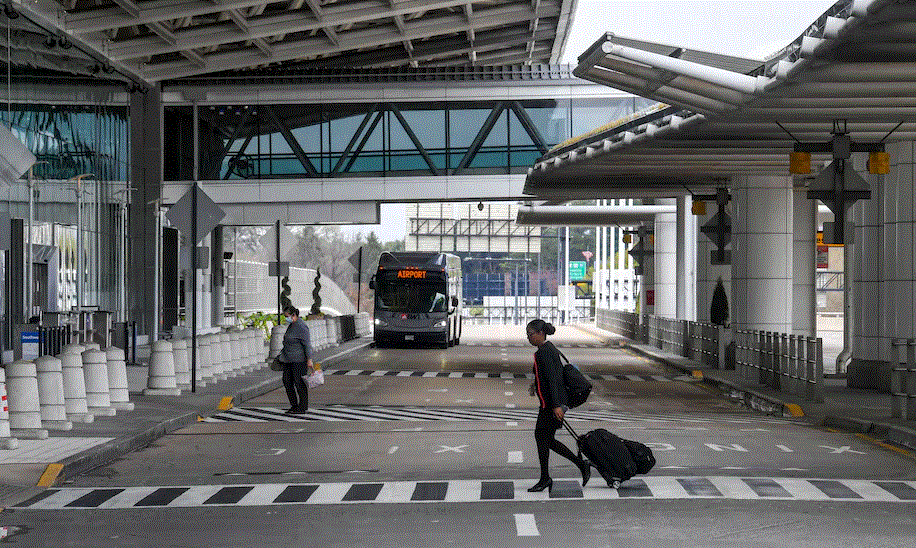
A terminal entrance at Baltimore-Washington International Marshall Airport. (Jonathan Newton/The Washington Post)
Maryland should lease out BWI to pay off its pension debt
Originally published in the Washington Post
Maryland had $20 billion in pension debt at the end of 2020. This debt stems from unfunded pension benefit promises in both its teachers and regular state employees’ pension systems. Maryland, along with most other states, saw record-high investment returns for its pension plans last fiscal year, but even this 27 percent return won’t prevent rising pension costs for employees, retirees and taxpayers.
Maryland needs to find a way to pay down this debt.
One source of new funds state policymakers should explore is payments from a long-term lease of the state-owned Baltimore-Washington International Marshall Airport. A study from Reason Foundation transportation expert Robert Poole estimates the Baltimore airport could be worth between $1.6 billion and $2.3 billion via a long-term lease to private airport companies and investors. The airport has $642 million in debt, and, after paying off those bonds, the state could net $1.6 billion from a long-term lease of BWI.
Using these funds to pay down pension debt could reduce future pension costs for the state. Maryland is spending $1.8 billion a year in contributions to the pension plans, and $1.4 billion of this is going toward debt payments. Maryland could free up a portion of its budget each year by using the revenue generated from the airport lease to pay down part of this pension debt.
Leasing an airport involves a state or local government entering a long-term public-private partnership. The typical airport lease is 40 to 50 years. Most often, private companies provide the entire long-term lease payment up front, but they can also choose to issue a down payment and provide scheduled payments over time, as was the case with the lease of the Luis Muñoz Marín International Airport in San Juan, Puerto Rico. The revenue generated could be used for other purposes, such as updating or maintaining existing infrastructure — often referred to as infrastructure asset recycling — or paying down other government debt.
Throughout the world, privately managed airports are becoming the norm. Many large and medium airports in Europe are either fully or partially privatized and are generating revenue for public use, something governments in the United States are missing out on.
These long-term leases can be a win-win for governments and airport customers if properly designed. Ensuring that there is a transparent leasing process, enough competition between companies bidding on the assets and that there is buy-in from airlines is key to designing successful lease agreements.
This idea is not entirely new to Maryland policymakers. In 2010, the state considered full privatization of the airport in an attempt to shore up debt. However, the plan fell through when then-Gov. Martin O’Malley (D) felt that the deal offered was not reflective of the true value of the airport. In addition, he believed that the private company needed to act as a job creator and bring value beyond just cutting costs.
Whether an airport lease must meet every one of those requirements is subjective, but experience in other countries demonstrates that it is possible to address these concerns within the details of a lease agreement.
However, given the size of Maryland’s pension debt relative to the potential value of the airport, the state would need to consider additional policy reforms to fully fund retiree benefits and prevent the growth of future unfunded liabilities. These reforms should include lowering investment return assumptions so they are more in line with market realities and creating a plan to fully pay off the pension plan’s debt within a realistic time frame.
If well executed, long-term airport leases can improve the quality of airport services and provide additional revenue for government bodies. Maryland should strongly consider leveraging BWI to help the state at least partially address its serious pension funding shortfalls.
Christopher B. Summers is president and chief executive of the Maryland Public Policy Institute. Swaroop Bhagavatula is a quantitative analyst for the Reason Foundation.






